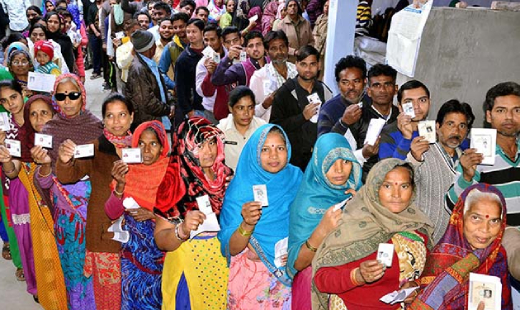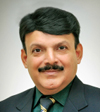General Elections – A Festival of Discord
General Elections – A Festival of Discord
Mangalore Today News Network
By Dr G Shreekumar Menon
Mangaluru, March 7, 2024: Winston Churchill was at his sarcastic best when he quipped “The best argument against democracy is a five-minute conversation with the average voter.” India would have been one of the nations that scrambled into his mind when he made the above trenchant observation. Imagine the tremendous upheaval, acrimony, bitterness, and volatility, it causes in every segment of a nation’s life. Quinquennial, seeking of people’s mandate is fraught with great uncertainties, risks and vagaries of the people. It is not just the intelligent people who determine the electoral fortunes of the aspiring candidates, but also the unintelligent, immature, educated and uneducated, tax payers and non-tax payers, and all age groups above 18 years, who get dragged into this power drama.

A necessary prelude to this event is to compel creation of rifts, animosities, bitterness, rivalries, by dividing people based on religious groups, castes, denominations, languages, dialects, wealth, regions and occupations. To sow discord, support of print and visual media, social media and speakers with good communication skills are enlisted. Another invaluable asset are foreign funded NGOs, foreign media, writers and universities, who if properly funded, can make a breeze into a storm, and a whirlwind into a rustle.
Depending on the numerical strength of the community in the overall population, in a region, fresh freebies are promised, while existing freebies get upgraded. It is plundering time for select communities, who flaunt coloured identification cards, and certificates, as legal proof that they are ‘Freebie-enjoyers’. There are many communities eagerly seeking membership of this elite “Freebie-enjoyers’ club. Community leaders, political families, religious leaders, opinion makers are all hyperactive canvassing new aspiring entrants. In the process communities are pitched against each other, acrimonious debates set in motion, political alignments forged, with no consideration for ethics and morality.
In any General Election there are complex dynamics and ramifications of political violence in the country and its implications for governance, nation-building and democratisation. There are two critical issues: the ways in which the lack of consensus among competing factions of the political elite provide the context for violence, and the complicity of some international actors and powers in fomenting violence and discord. “Electoral conflict and violence become tactics [of equal importance] in political competition”. (Jeff Fischer, Electoral Conflict and Violence: A Strategy for Study and Prevention, IFES White Paper, 2002-01, 5 February 2002, p. 2.)
Like the ballot box, street protests are susceptible to manipulation and abuse. But such abuse constantly happens, across the country. Unlike the ballot box, though, streets are not easy to discipline. Rather, protests carry with them all the baggage that is not visible in the simple act of casting a ballot. This baggage can very easily lead to events that spiral out of control. Three main forms of violence occur during election time. These can be spontaneous, premeditated or planned and state-directed. Quite often these forms overlap, or are reinforced or undermined to each other in a complicated relationship.
The next issue is social cleavages, such as unemployment, poverty alleviation programs and need for social services, that drives conflict between political parties as well as government and opposition. The next is the institutional explanation that includes the election process, the party system and coalitions as well as the authority of the executive branch.
Political violence typically takes the form of murder, assaults, sexual abuse such as rape. The ongoing mass upsurge in Sandeshkali in Bengal is a typical example of political violence occurring in connection with the upcoming General Election. Mass rape of women, use of threat and intimidation to suppress it, are all typical of political violence. Economic violence, on the other hand, is characterised by an individual (or a multitude of individuals) illegally pursuing financial enrichment by means of violence (or threats of violence), and typically manifests as street crimes such as robbery, drug related crimes or kidnapping. Bank frauds, online frauds, chit fund scams come under this category. Social violence is said to pursue the empowerment of one individual or group over another, for example through domestic violence, agitations in schools, colleges, farmers’ agitation, truck drivers’ agitation and so on. Many experts, however, recognise that political violence should not analytically be disintegrated from economic and social violence because all forms of violence interrelate. It is worth noting that the term political violence is used for a broad variety of situations, ranging from terrorist attacks, armed revolution, violent demonstrations or attacks by citizens. Political violence, therefore, is not confined to non-state actors’ use of violent means to further a political agenda but can also relate to the state’s exercise of force, both against its own citizens and against other States and their citizens. In short, political violence relates to acts of violence that are carried out primarily as a means of achieving political influence or power.
Another problem confronted in democracies is the deluge of money that makes its way into any election campaign. It is impossible to conceive of democracies without elections, and it is equally paradoxical to imagine elections without money. In India, where there are multi-layered elections starting from Panchayat, Municipality, Corporation, Assembly and Parliament, in addition to electoral battles in cooperative societies, colleges and universities, and trade unions, elections seem to be a continuous carnival, demanding massive infusion of money constantly.
Central and State governments, are heavily burdened financially to conduct timely elections. Enormous expenditure is incurred on bureaucrats, observers, civil servants, for conducting elections, releasing advertisements, vehicles, security, and the financial loss due to stoppage of work in many government departments.
The time has come to evaluate the wastage of multi-layered elections, taking into consideration the enormous burden on the public exchequer, the massive unaccounted money inundating the entire spectrum of political campaign, wanton promises of freebies, political violence, diverting public revenues for improvement of certain select sections of the population. Further, there is a need to think of expanding government tenures from the present five-year term to either seven or even ten-year term, in the interests of long term continuity, stability, and avoid financial profligacy, both, by government and other stakeholders.
 Dr. G. Shreekumar Menon, IRS (Rtd), Ph.D. (Narcotics)
Dr. G. Shreekumar Menon, IRS (Rtd), Ph.D. (Narcotics)
Former Director General of National Academy of Customs Indirect Taxes and Narcotics & Multi-Disciplinary School Of Economic Intelligence India; Fellow, James Martin Centre For Non Proliferation Studies, USA; Fellow, Centre for International Trade & Security, University of Georgia, USA; Public Administration, Maxwell School of Public Administration, Syracuse University, U.S.A.; AOTS Scholar, Japan. He can be contacted at shreemenon48@gmail.com
- Ramadan 2024 and Islam in Mangaluru
- Instead of political party manifestos, Why not people’s manifesto?
- General Elections – A Festival of Discord
- Fear and Silence of the Lambs: Protesting against injustice and assault is your fundamental right
- Cocaine Trafficking into India Scaling Alarming Proportions
- Houthi terrorists reddening the Red Sea
- The American Flag Kilt | A Patriotic Fashion Statement
- Face to face meeting with a revolutionary insurgent
- Consumer Movement: Ways to involve students
- Unveiling the Path to a Clutter-Free Lifestyle in Commerce City
- Soaring cybercrime graph
- Elevate Your Style With a Trendy Red Leather Jacket Mens
- Look Down Please
- Kashmir Bhavan in Bengaluru: A must visit place
- "MAI and I" Book of Angelic Emotions
- Draupadi Murmu - The New ’President of India’
- Anthony Ashram in the city grows a classic museum
- First College of Fisheries in India - A Golden Jubilarian
- Flushing Meadows - A Vintage Mansion
- The Colonel�s Bequest
- A Mangalorean PM and his RBI Governor Brother: The Extraordinary story of the Benegal Brothers
- There is no higher religion than Truth: Theosophical Society
- L�affaire - Ashu & Yiju of Mangalore
- Mangalore in Kowloon
- 1568 to 2018 AD: 450 years of Christianity in Mangaluru
- Vice President elect Naidu moves on from nadir to zenith, the phenomenal journey
- Embracing the Outdoors: How Heated Jackets Are Revolutionizing Cold Weather Activities
- The Hybrid Kilt Revolution | Where Tradition Gets Trendy
- Affordable Elegance | Embrace Style on a Budget with Cheap Kilts
- Unleashing Style and Functionality | Exploring Tactical Kilts
- Mangalore’s Heroic Lady marks 105th Birthday
- Santa the Christmas spirit
- Geriatric care: Mangalore strikes a fine balance
- The Don Who Made Two Empires to Clash
- CHITRAPUR SARASWATS - A Great Kanara Community
- Our new President Ram Nath Kovind’s significant journey to Rashtrapathi Bhavan
- Marriages made in heaven, big fat weddings made in India
- Eid insight - The giver of glad tidings
- �Makara Sankranti� festivities galore
- CITY INFORMATION
- TRAVEL
- TOURIST INFORMATION
- HEALTH CARE
- MISCELLANEOUS




 Write Comment
Write Comment E-Mail To a Friend
E-Mail To a Friend Facebook
Facebook Twitter
Twitter  Print
Print 

